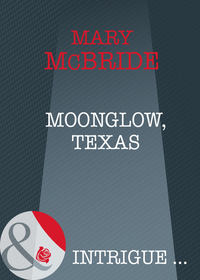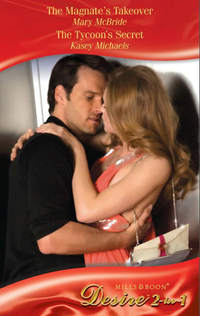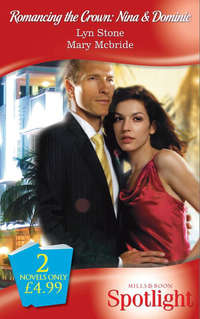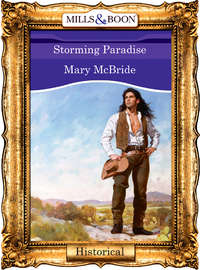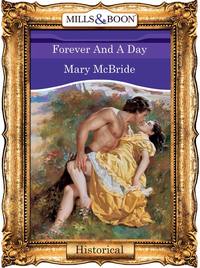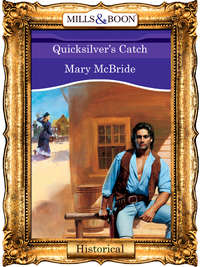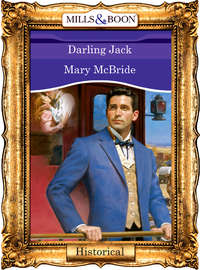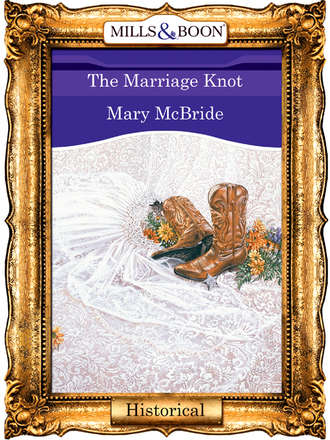
Полная версия
The Marriage Knot
It was so dusty that Hannah felt like a black broom sweeping toward town in her mourning garb. She wondered how long it would be before the planked sidewalks stretched past the dry goods store, making her walks into town more pleasant not to mention cleaner.
When she lifted her skirt to step onto the sidewalk, several gentlemen tipped their hats and murmured their condolences. Hulda Staub, the wife of the mayor, was exiting the dry goods store just as Hannah passed, and the monumental matron immediately dropped her packages and wound her arms around Hannah, drawing her into a surprisingly tight embrace.
“My dear Mrs. Dancer. How I admire your courage in the face of your loss. How brave of you to be out and about so soon. Lord knows if my Herman passed, I’d barely be able to leave the confines of my bed much less my house.”
Caught in Hulda Staub’s flesh embrace, Hannah wasn’t exactly sure whether she was being praised or censored. She didn’t have time to decide, however, before the heavy-set woman continued.
“Well, now, you must come to our Ladies’ Sewing Circle, my dear, on alternate Wednesdays. I insist. We ladies mean to see that you’re not lonely.”
Hannah had lived in Newton for nine years without ever being invited into this exclusive little group. She had always assumed the ladies disapproved of her because she was so much younger than Ezra and also because, in those early years, she so obviously lacked some of the social polish she had later acquired. Deep in her heart, though, Hannah had a suspicion that these so-called ladies of Newton saw right through her and took her for the working girl she once had been.
She didn’t know how to respond to Hulda Staub’s invitation. And, to add to her dilemma, Hannah despised sewing and couldn’t imagine a worse way of spending her time than convening with a group of matrons, all poking needles through linen while rolling their eyes and wagging their tongues and making soft little tsk-ing sounds.
“Thank you, Mrs. Staub,” she said. “It’s very kind of you. Perhaps once I’m feeling a bit stronger...”
“Time, my dear,” the woman said, seeming to prefer her own voice and opinions to Hannah’s. “Time heals all. Shall we expect you next Wednesday?”
“Well, I...”
“Splendid!” Hulda Staub gathered up her packages. “Oh, I nearly forgot to tell you. Mr. Galt just received a lovely bolt of black moire at the emporium. You really must take a look at it.”
“Well, I...”
“Good day, my dear.”
Before Hannah could reply, the mayor’s wife was already bustling away. On her way, Hannah thought, to accost some other unsuspecting citizen. Then she immediately chastised herself for even entertaining such an uncharitable notion. No doubt Mrs. Staub meant well.
But, in the hope of avoiding any other well-meaning, solicitous folk, Hannah surveyed both sides of Main Street. The few people she saw were minding their own business while doing their best to keep to the shady portion of the sidewalk. Then, although she hadn’t planned it, her gaze came to rest on the empty chair in front of the sheriff’s office, and her heart promptly fluttered at the sight.
“Oh, Hannah,” she muttered under her breath. It wasn’t right, that feathery feeling inside her. It hadn’t been right when Ezra was alive. It was worse now that he was barely in his grave. It was downright wrong. Perhaps even sinful. Probably so. She ripped her gaze away from that beguiling chair just in time to see Henry Allen bound off the sidewalk in front of the bank.
“Mrs. Dancer,” he said breathlessly after sprinting across the street, kicking up dust in his wake. “You shouldn’t be out in this infernal heat. Why, you’ll melt away for certain.”
“I hardly think so, Henry. Unless, of course, you believe I’m made of snow or ice.”
His smooth-shaven cheeks flushed. “Oh, no. That would be an insult to one as sweet as you.” He crooked his arm in invitation. “May I escort you to Mrs. Tyndall’s for a lemonade?”
Instead of feeling flattered by his offer, Hannah was irritated. The silly young man. Why didn’t he aim those Cupid’s darts and sunbeams at someone who’d truly appreciate them? Florence Green, for example. But Henry appeared to regard the spinster schoolteacher—if he regarded her at all—as little more than a fixture in the house, a piece of furniture, a hall clock in the shape of a woman or a table draped in feminine attire.
“Thank you, Henry. That’s very kind, but I have an appointment at three o’clock.”
It suddenly occurred to Hannah that between Mrs. Staub’s aggressive attentions and now Henry’s puppyish devotions, she was probably late for her appointment with Abel. Very late.
“Oh, dear. What time is it, Henry?”
He yanked his watch from his vest pocket. “Ten past three,” he said.
“Oh, dear.” Gathering up her black skirt, Hannah started down the sidewalk toward Abel’s office. “If you’ll excuse me, Henry, I’m very, very late.”
“May I see you to your destination?” he called.
Almost sprinting now herself, Hannah just waved her hand in what she hoped was a polite but firm gesture of refusal.
Being late for the reading of Ezra’s will was hardly an auspicious beginning of her new life of independence and responsibility. On the other hand, it struck her as a mere formality. What difference did it make? There was no one else in Ezra’s life except her. His parents were long dead, and since he’d been an only child there were no brothers or sisters to be remembered in his will. No long-lost cousins or uncles or aunts. Nary a niece or nephew. As far as Hannah knew, for the past fourteen years, there had been no one in his life but her.
Abel’s office was located on the second floor above Hub Watson’s saddlery and leather goods. Hannah dragged her heavy black skirts up the outside stairs, all the while dreading being met by deep frown lines on Abel’s brow and a disapproving droop to his mustache. She stood on the landing a moment to catch her breath and to steel herself for a possible reprimand for her tardiness, then she knocked on the door, just below the brass plaque that proclaimed “A. Fairfax, Attorney-at-Law, Journalist, Scribe.”
“Come in, Hannah.” Abel’s voice came through the closed door, and she was relieved that he didn’t sound unreasonably perturbed or even slightly impatient.
She opened the door and stepped into what could only be described as a dim, dusty maze of books and journals. All four walls were lined with bookcases. More bookcases stood in front of the windows, all but blotting out the light of day. Dozens of bookcases. Crammed bookcases. There were books atop the bookcases, and towers of books on the floor. A veritable librarian’s nightmare. What little sunlight that managed somehow to filter through the windows was riddled with motes of dust.
Hannah’s skirt brushed against one literary tower and set it to swaying precariously. She was leery of taking one more step for fear of starting a domino effect that would scuttle Abel’s entire office in mere moments, so she stood still just inside the door, breathing the musty air and letting her eyes become accustomed to the dim interior.
And that was when she noticed, quite suddenly, that, in addition to all the books, there was a shotgun leaning against a bookcase and, on the far side of the office, someone—Delaney!—was leaning against a window frame.
Abel rose from behind his cluttered desk. “That’s all right, Hannah. It’s an office, not a china shop. There’s nothing that’ll break. Here.” He chuckled softly as he swept a newspaper off a chair and gestured for her to be seated.
Hannah hesitated. Her heart was in her throat now, getting in the way of speech. “Shall I... Would you prefer if I waited outside until you’ve finished your business with the sheriff?” she asked.
“No. That won’t be necessary. Sit. Come on. Sit right here.” Abel glanced over his shoulder. “Sheriff, why don’t you take that other chair. Just shove those pamphlets onto the floor.”
Delaney’s spurs made a soft music when he crossed the room. Then, when he took the chair beside hers, she could have sworn the temperature in Abel’s office went up several significant degrees. Out of the corner of her eye, she was intensely aware of Delaney’s long legs, even the ropy veins on the backs of his hands and the tanned cords of muscle below his rolled-up sleeves. Before she realized it, she had reached out to grasp a pamphlet on Abel’s desk and had begun fanning herself with it.
“I’ll make this as quick as I can, Hannah. I know it’s uncomfortable in here,” Abel said.
Uncomfortable, yes. But it wasn’t just the heat, Hannah thought. Why was it she could never breathe properly when Delaney was around? Her chest felt constricted, as if her corset had shrunk a size or two.
“Thank you, Abel.” She glanced to her left, tried to mount a tiny smile, then asked, “I suppose the sheriff is here as a witness?”
“Well, no. Not exactly, Hannah. Ezra’s will was witnessed a month ago by me and Mayor Staub. Not that Herman knows what’s in it. He just signed and certified that Ezra was competent and in his right mind.” Abel’s gaze moved slowly and deliberately from Hannah to Delaney and back. “Which he was, I think you’ll agree, in spite of his pain. Competent, I mean, and in his right mind.”
“Of course he was,” she said with more than a little starchiness. “Ezra was the sanest man I’ve ever known.”
Delaney merely shrugged.
“All right then.” Abel picked up a single folded sheet of paper. “I’ll just read this in Ezra’s own words. It’s pretty simple. No wherefore’s or furthermore’s or other legal mumbo jumbo. Just his final wishes.”
Read it! Hannah wanted to scream. Let this be done so I can go home. Home where it’s cool and I can breathe again.
After unfolding the paper, Abel stared at it a moment and then began to read. “These are my worldly goods. A house located on the corner of Main and Madison Streets in Newton, Kansas, and all the contents therein. There aren’t any secret bank accounts or railroad certificates hidden in drawers or books. There’s a thousand dollars in gold, Hannah, and you know where that is. It’s yours now.”
Abel peered over the will at Hannah. He raised his eyebrows as if to ask if she understood. Hannah nodded in reply. She knew where the gold was. Over the years Ezra had a habit of stashing coins in the pair of French porcelain ewers on the mantel in the front parlor. Since she was the one who dusted there and had to move the heavy vases, it didn’t surprise her a bit that the total came to a thousand dollars.
Abel cleared his throat and continued. “As for the furniture and all the other contents of the house, they’re yours, too, Hannah.”
She nodded again, unsurprised, for she had chosen nearly every stick of furniture and every rug, plate, picture and pillowcase there. “Fill up our house, honey,” Ezra had said. And so she had.
To her left now, Hannah was aware of Delaney shifting restlessly in his chair. He seemed as eager to leave as she was.
“About the house,” Abel read. “I’ve given this considerable thought. Delaney, you saved my life last January when my feet went out from under me in front of the bank and the McCarthy boys’ wagon just about backed over me. Maybe you don’t even recollect what you did.”
Abel glanced toward the sheriff. “You remember that?” he asked.
“Sorta.”
Hannah had a vague memory of a bruise on Ezra’s arm sometime last winter. It might have been January. “It’s nothing,” he’d told her. “Slipped on the confounded ice.” But he hadn’t said a word about any peril or apparent rescue.
Abel read on. “You said it was nothing then, yanking me out of harm’s way like that. But it wasn’t nothing to me. I was dying anyway, but at least you kept me from dying a cripple or an amputee. I’m grateful to you, Delaney. And so I’m leaving you my house.”
Hannah stopped fanning herself. “The house? What was that about the house, Abel?” Surely she hadn’t heard him correctly. Surely Ezra hadn’t meant...
“That’s what Ezra wanted, Hannah. The furniture and everything is yours, but the house goes to Delaney here.”
“Why, that’s...that’s...” She couldn’t think of a word to describe her complete bafflement. “It’s absurd. It doesn’t make any sense.”
“Maybe not,” Abel said. “But that’s the way Ezra wanted it.”
The temperature in the office suddenly seemed to increase tenfold, making Hannah feel sick and dizzy. There was some mistake. That was it. Some terrible mix-up. She was certain of that. She’d go home and wait for Abel. He’d explain it then, and they’d laugh at her misunderstanding and everything would be all right.
She stood so fast that she had to grasp the edge of the desk to keep from swooning.
“You all right, Hannah?”
Abel’s face became a blur and, when she answered him, her own voice seemed to come from somewhere else if not from someone else.
“Yes, I’m fine. I’m leaving now, Abel. I’m going home.”
A little while later Abel Fairfax found himself quite alone in his cluttered office. When he’d finished reading the will, things shook out just about as he’d expected.
Hannah had risen from her chair—stiff as a black umbrella—dazed as a rabbit in torchlight—then steadied herself with a hand on the edge of his desk before heading out the door. She wasn’t nearly so careful of his books this time, and sent several stacks toppling.
As for Delaney, he’d sat for a minute, expressionless, like a man whose body had turned to stone. Then, when he’d finally spoken, his voice was closer to a growl than it was to human speech.
“What the hell is this, Fairfax? What the blazing hell?”
In response, Abel had merely shrugged and blinked. Then, like Hannah before him, Delaney sent another dozen books flying as he stormed toward the door and slammed it behind him.
Alone now, Abel stared at the dust motes the man and the woman had churned up in their separate wakes. In the few stray beams of light that managed to pierce his window, those particles were dancing for pure joy.
Abel shook his head and sighed. “I hope you know what you’re doing, Ezra, you damn fool.”
Chapter Four
What the blazing hell?
Hours after hearing Ezra Dancer’s will, it still made about as much sense to Delaney as it had originally. In other words, it made no sense at all.
Sure, he remembered that day when Ezra had slipped on the ice, then couldn’t get his feet back under him to get out of the way of that wagon. Delaney just happened to be right there and had done what anybody else would’ve done by lugging the man out of harm’s way.
It had earned him a handshake then and a hearty thanks, and Ezra had mentioned it a time or two later. The man had been grateful. Fine. But gratitude was one thing; a bequest was something entirely different. And a house was...
Judas!
He tilted his chair onto its back legs, eased his head back, then slanted his hat against the bright sunset. It was quiet in town. Just about everybody was home having supper. Those who weren’t, but went to the saloons instead to drink their evening meal, hadn’t had time enough yet or liquor enough to make any trouble.
If he looked west down the street and squinted against the sunset, he could just make out one corner of the verandah on the Dancer place, nestled in its shady patch of elms.
It was a joke, he told himself again. A man didn’t leave a mansion like that to a virtual stranger even if he had saved his life or kept him from breaking some bones. It was ludicrous. Downright crazy, especially when the man had a wife.
No. Delaney told himself he’d heard it all wrong. Maybe it was so dark and dusty in Abel’s office that the old fellow had gotten everything upside-down and backwards. He should have stayed and taken a look at the paper himself, but his mind had just gotten scrambled with the shock of it. The widow’s, too, he supposed. They’d just about knocked each other over trying to get out the door.
Right now Hannah was probably eating supper with Abel Fairfax and the two of them were laughing at the misunderstanding. Delaney felt his own mouth slide into a grin.
Hell, in all his thirty-five years, he’d never owned much more than a horse and a gun and the clothes on his back. It was a likely bet he never would.
A house! That house! Judas priest. The place had to be worth ten thousand at least. Maybe more. With money like that, Delaney could do a little more than just buy in with the Earps. Why, hell. He could buy them out.
During supper that evening, Hannah did her best to pretend nothing was wrong. But after Henry excused himself to take his evening constitutional and Miss Green went upstairs to read a new volume of poetry, Hannah couldn’t pretend a moment longer. She felt like a teakettle, all boiling and roiling inside.
“Abel, I’ve been sitting here waiting for you to tell me this is all some terrible mistake,” she said. “Ezra’s will, I mean.”
He shook his head. “It’s no mistake, Hannah, although I’ll be the first to admit it’s, well, unusual.”
“Unusual!” Hannah shrieked. “Unusual! Why it’s completely absurd, Abel. More than that. It’s ridiculous. And it can’t possibly be legal.”
“Oh, it’s legal, all right. A man can leave his property to whoever he chooses.” He leaned forward a bit. “Don’t you remember reading about that dog in New Haven, Connecticut, whose owner left him a fortune in railroad bonds?”
Hannah rolled her eyes. “Well, at least he knew and treasured the blasted animal. Ezra hardly ever said two words to Delaney that I know of.”
“The sheriff earned his gratitude for saving his life, I guess.” The older man tucked his napkin under his plate and then pushed his chair back from the table. “I can’t explain it to you, Hannah. I only know what Ezra said in his will.”
She’d known Abel Fairfax long enough to know when the man would not be pressed. Right now his mouth was drawn tighter than fence wire, so Hannah kept silent. She wasn’t finished, though. She’d have her explanation. Somehow.
In the week that followed, Hannah didn’t leave the house. Not once. She sent Nancy, the hired girl, to the grocery store instead of going herself, and she asked Florence Green to return her book to the library and to choose a new one for her. It didn’t matter what. Hannah couldn’t concentrate enough to read anyway.
Her disbelief at Ezra’s will turned first to dismay, and Hannah found herself wandering from room to room in the house she had shared with Ezra for nearly a decade. It was so easy to picture him in his favorite reading chair in the back parlor, or coming through the front door and tossing his hat onto one of the porcelain hooks on the hall tree, or climbing the stairs with his big hand curved around the polished walnut bannister.
She missed him. Dear Lord in heaven, she missed him so very much.
But then her dismay seemed to settle into a profound, piercing anger. And there was, Hannah readily admitted, more than a little self pity, too. How could there not be? How could Ezra have done this to her? How could he have left this house—truly the only home she’d ever known—to somebody else? To Delaney!
And just where was Delaney, anyway? She hadn’t seen him since the afternoon Abel had read the dratted will. In the beginning, for a while, she’d entertained the faint hope that the sheriff would knock on the front door, smiling, hat in hand, when he told her it was obvious, just plain as day, that Ezra hadn’t been thinking straight and that she shouldn’t worry for one second about his taking property that was rightfully hers.
It hadn’t happened, though. A week had passed and there had been no word from the man. Not a peep. In this case, Hannah didn’t believe for a minute that no news was good news. More than likely, he was probably just waiting for her to do or say something, to make the first generous gesture so he wouldn’t appear to be such a greedy, grabby beast. That was obviously his plan. Let Hannah Dancer make the first move. As in move out all her worldly goods.
Ha!
Let him wait. Hell would freeze over first.
To say that Delaney spent that week not thinking about the Dancer house wouldn’t have been exactly true. He tried not to think about it. Every time the notion cropped up in his brain, he did his damnedest to ignore it. The trouble was that it cropped up so often that trying to ignore it was actually thinking about it.
After he’d considered every angle of the absurdity of the bequest, he got to thinking about what a stroke of good fortune it was. Pure luck. Pure dumb luck. But things like that happened. He knew they did. Why not to him?
Just a few years ago in Abilene a cowhand had been nearly killed in a saloon brawl, then was nursed back to health and happiness by a whore named Ruby Tree. It turned out that he was some rich English duke or earl or something, and—for her nursing skills—Ruby Tree was now the Duchess of Something on Trent.
Things like that happened. Delaney had saved Ezra Dancer’s life. That was a fact. Why shouldn’t he inherit his house?
So, after not thinking about it all week, Delaney found himself knocking on Abel Fairfax’s door late one afternoon, determined to resolve this inheritance one way or another.
“I figured I’d be seeing you sometime soon,” Abel said, gesturing to a chair littered with papers. “Sit down, Delaney. What’s on your mind?”
The sheriff sat, his shotgun balanced across his knees. He cleared his throat. “I don’t think you have to be a confounded lawyer or even a genius to figure out what’s on my mind, Abel.”
“No. I suppose not.”
“What the devil was Dancer thinking?”
Abel shrugged. “Who knows? It’s not like he didn’t provide for Hannah, you know. The contents of that house are worth plenty.”
“Yeah, but...”
“Plus there’s cash,” Abel added.
“I know that, but...”
“What, then? You feel like you’re stealing from the widows’ and orphans’ fund or something?”
“Maybe.” Delaney shifted in the chair. “Yeah. I guess I do.”
“Turn it down, then.”
“Don’t think I haven’t considered it.”
“And?”
“I’m still considering it,” Delaney said. “I just thought you might have some advice.”
“Talk to Hannah.”
The sheriff blinked. “What do you mean?”
“I mean if your conscience is bothering you so much over this, then talk to Hannah and see if you can’t resolve it somehow between the two of you.”
The suggestion, logical as it was, took Delaney completely by surprise. He’d spent so many months avoiding Ezra Dancer’s wife that the thought of seeking her out now—intentionally!—for conversation struck him as preposterous. And what the hell would he say to her anyway that wouldn’t make him sound even more foolish than he felt?
Sorry about your house, ma’Vam. But a will’s a will, you know. Legal and all that. Plus, a man would have to be a total fool, a stumbling idiot in fact, to turn his back on such good fortune.
“Talk to her,” Abel said again.
“All right.” Delaney stood up. “I’ll do that. I’ll do just that. Thanks, Abel.”
Someone was knocking on the front door with such force and persistence Hannah was sure the wood was splintering beneath that big fist.
Where the devil was Nancy? she wondered. That dratted girl was never where she was supposed to be. After another series of thunderous bangs, she put her teacup down and went to the door herself. She muttered a curse as she jerked it open.
“Oh.”
Delaney was so tall that she found herself staring into the knot of his black silk tie. Her eyes flashed up to his face.
“Sheriff Delaney.”
“Mrs. Dancer.” He nudged his hat back, then took it off entirely. “We need to talk.”
Hannah wasn’t sure she could. Her heart was pressing up into her throat the way it always did whenever she was within several feet of this man. She felt her face going up in flames.
“Come in.”
Hannah stepped back, and then retreated some more as Delaney crossed the threshold. He stood there a moment, silent, his gaze encompassing the vestibule, and then, with a quick and fluid flick of his arm, he lobbed his black hat onto a porcelain hook on the hall tree.


